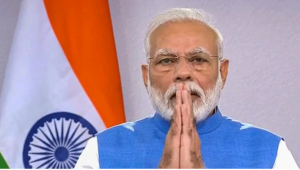 NEW DELHI: Traders across the country have decided to shut their businesses on Sunday, extending support to Prime Minister Narendra Modi’s call for a ‘Janata Curfew’ on that day in the wake of Coronavirus epidemic. Traders’ body – the Confederation of All India Traders (CAIT) – has said that all traders will keep their shops, businesses closed on Sunday in the wake PM Modi’s call for Janata Curfew from 7 AM to 9 PM.
NEW DELHI: Traders across the country have decided to shut their businesses on Sunday, extending support to Prime Minister Narendra Modi’s call for a ‘Janata Curfew’ on that day in the wake of Coronavirus epidemic. Traders’ body – the Confederation of All India Traders (CAIT) – has said that all traders will keep their shops, businesses closed on Sunday in the wake PM Modi’s call for Janata Curfew from 7 AM to 9 PM.
The traders’ body has also urged the citizens to stay indoors to prevent spread of novel coronavirus.
“In response to the clarion call of Prime Minister Narendra Modi for imposing self Janata Curfew on 22 March, the Confederation of All India Traders (CAIT) appreciated the call of Prime Minister and the commercial markets across the country will take part in Janata Curfew and seven crore business establishments in the country may down their shutters on 22 March,” CAIT General Secretary Praveen Khandelwal said in a press release.
“A final decision in this regard for nationwide market closure on March 22 was taken after consultations with trade leaders of all states,” he added.
Khandelwal also said that CAIT lauded the formation of Covid-19 taskforce under the chairmanship of Finance Minister, also announced by the Prime Minister in his televised address, terming it a right step which will mitigate the problems and concerns of the traders.
In his address to the nation on Thursday night, PM Modi had appealed to people to practise social distancing and avoid public spaces. As a test case to prepare for future challenges, he asked them to observe a janata curfew — a self-imposed curfew —“of, for and by the people” from 7 am to 9 pm on Sunday.
He also asked people not to resort to “panic buying” of eatables, adding that it would be ensured there was no scarcity of milk, eatables, and medicines.
In his nearly half-an-hour speech, Modi said the pandemic had already deeply hurt the economic interests of the middle class, the lower middle class, and the poor.
He asked those running businesses, and also those in high-income groups, to protect the interests of people who provided them with services, and not cut their wages and salaries even if they did not come to work.
Bureau Report
Leave a Reply